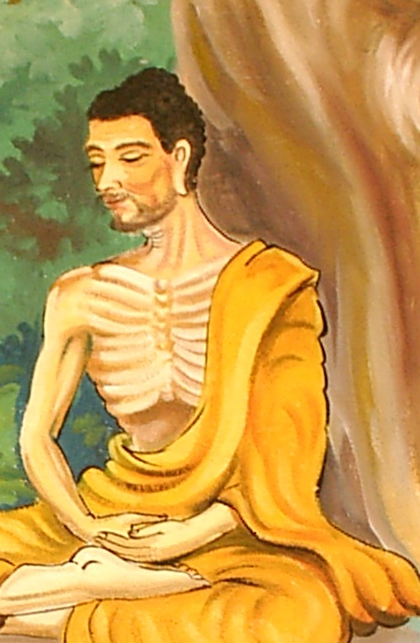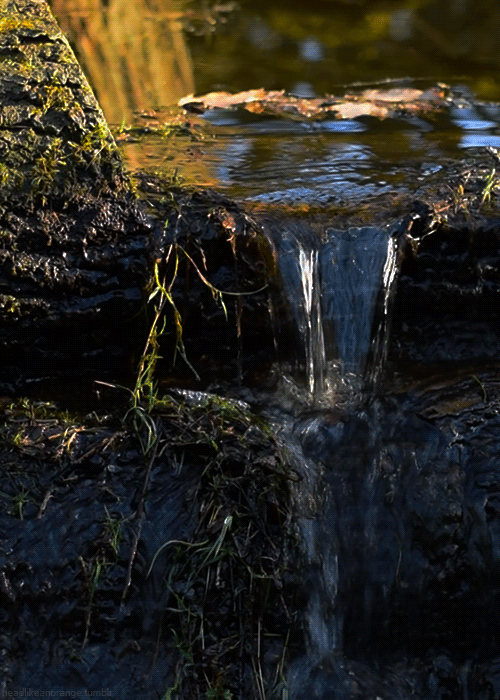
“Buddhist terrorist. Muslim terrorist. That wording is wrong,” he said. “Any person who wants to indulge in violence is no longer a genuine Buddhist or genuine Muslim, because it is a Muslim teaching that once you are involved in bloodshed, actually you are no longer a genuine practitioner of Islam.”
“All major religious traditions carry the same message: a message of love, compassion, forgiveness, tolerance, contentment, self-discipline – all religious traditions”.
Source: Dalai Lama: There is no such thing as a Muslim terrorist | The Independent
August 16, 2017 | Categories: Aggression, Anger, Dharma, Ignorance, Religion, Tibetan Buddhism, Violence | 2 Comments
Source: ECOBUDDHISM :: Dudjom Rinpoche 2012
http://www.ecobuddhism.org
Posted Dec 4, 2016

Ecobuddhism:
Since the last time we spoke about this subject, five years ago Rinpoche, the gravity of the climate crisis is even better understood. The leading climate scientist, Dr James Hansen of NASA is publishing a large multiple-author study which makes it clear that there must be a great change in current policies if we are going to avert the danger of crossing a “tipping point” in the climate system–whereby the whole process will become self-generating and pass beyond human influence. In essence, he says, we have ten more years to make fundamental changes in the way our society uses energy and treats the natural world.
The well-known Buddhist teacher, Zen master Thich Nhat Hanh, who is now 86, is making a tour of the world to emphasize what he calls “falling in love with the Earth again.” He considers that by the end of this century, there may be no human beings on the Earth. He asks for a deep change of values. Therefore there seems to be the need for people to dedicate their practice, whatever that may be, for the protection of the Earth.
Dudjom Rinpoche:
There are excellent prayers focusing on protecting the Earth and environment written by Chatral, Dzongsar Khyenste Chokyi Lodro and Jigdral Yeshe Dorje Rinpoches. They are quite extensive, beneficial to recite and will have positive effects.
From a Tibetan Buddhist perspective, we could say that Guru Rinpoche is the source of all our dharma traditions. Not only the lineage of the Nyingmapa, but even the Sarma schools like the Geluk, have a special relationship with Guru Rinpoche. The lineage of the Great Perfection is unique to the Nyingmapa, but all Tibetan traditions of Buddhism are based upon a Nyingma template.
We consider Guru Rinpoche, Tara and Chenrezig to be the three primary protectors throughout the three times. They are united within a single wisdom intent, gazing upon all beings with compassion, continuously raining blessings on the outer universe and its inner contents—the world and all the living beings it contains. We make Dharma prayers to invoke these blessings.
Now from a worldly perspective, I agree completely with the scientific findings on climate change. When we consider the direction in which the global economy is moving and the kind of activities humans are engaging in, it is certain the outcome will be great harm for the world system. The general situation is most precarious: there will be no stability for the entire world and the beings in it.
From a religious perspective – and I’m not talking here about exalted teachings like the Great Perfection – even ordinary religious followers cannot feel happy in view of what is going on. We Buddhists believe the twelve links of interdependence are undeceiving. From that perspective too, the situation is very serious. I am just one religious teacher, without anything special to say. Yet I would ask that all people in this world think in terms of the common good, rather than focusing solely on their own benefit.
We share this one world. In order to uplift and preserve our environment, it definitely matters how we conduct ourselves in the collective sphere. We have to consider what will really benefit sentient beings, both short and long-term, with respect to environmental change. It is important to give careful consideration to the long term continuity of the human race and future generations.
We might feel a year is a long time, but the fact is that a whole decade goes by quickly. So it is essential to change our way of thinking and go beyond the obsession with private gain. Taking the state of the whole world into account is our universal responsibility now. It makes oneself happy and it accomplishes the welfare of others. It is our duty to care for the global environment. Let us reflect carefully on this.
To Buddhist followers, I would ask you to please examine the evidence, and determine the causative factors concerned. On the basis of what you find, please act accordingly and ethically. Non-Buddhists who see validity in this approach can also choose to act appropriately, in light of their own enquiry and values.
When we reflect on the unfolding of recent history, it is clear how great the scale is of what has already occurred. We used to have all these beautiful and pristine snow mountains. Now their glaciers are undeniably melting. Many places in the world are experiencing tremendous heat. Other places are experiencing great floods. New diseases are coming up and are reducing life expectancy for some. Things have certainly changed, and they are continuing to do so.
Although we must disseminate this information, there is the difficulty that it has the potential to bring about fear. Nonetheless, it is beneficial for the scientific community to spread the evidence they have gathered as extensively as possible. A religious leader who talks about these issues can influence only those persons with devotion—the advice is unlikely to spread far. Out of 100 people, perhaps one will listen. Yet those who consider these topics deeply can make significant changes by taking their inner meaning to heart.
Ecobuddhism:
Another problem has arisen in that climate science is being actively undermined by the proponents of the industrial economy, and even certain governments and the media. Scientists are feeling increasingly anxious that their advice is not being communicated to the general public. Some senior scientists now acknowledge this is primarily a moral issue and a question of values. It is beyond the scope of science. That implies that the global ecological crisis is a spiritual crisis. Finally, there has historically been contention between religion and science. A meeting of minds between them is not easy to accomplish.
Dudjom Rinpoche:
Yes, a partial conflict between science and religion exists. As does a conflict between climate science and modern industrial society.
If we examine the opposition between science and religion from a Buddhist perspective, the law of cause and result (karma) is what underlies the Buddhist belief in past and future lives. Scientists generally address themselves only to this one life, in an individualistic manner.
The scientific focus on this single life could be associated with materialism and used to justify neglect of the common good. What appears to our senses or instruments comes to define truth. What is not perceived in that way becomes insignificant and has no value. Only phenomena said to be “objective” are believed to truly exist.
The Buddhist view holds that virtuous causes bring happiness, and prepare the ground for full awakening. A conventional scientific perspective would dismiss the phenomena of lower realms and of deity as non-existent. Nonetheless, I think it would be excellent to find common ground between the scientific and religious worldviews. It might be difficult for them to become very close. But it is also not desirable for there to be a great divide.
I am not just speaking about the Buddhist religion. When we consider the religious traditions of the world, such as Christianity, Islam, Hinduism and so forth, the followers of Buddhism are relatively small in number. Most people follow one of the first three traditions. All possess teachings on compassion, and in some way focus on a process of mental transformation. This is really what religion is about: developing the mind.
People unaligned with any spiritual tradition may find it easier simply to proceed on the basis of scientific evidence. If this leads them to a clear sense of how to address collective and environmental issues, that will be excellent for themselves and others.
Some materialists assert this is the only life we have. This view could limit their understanding of the global environmental crisis. Buddhists believe that in future lifetimes we experience the karmic consequences of our present life’s actions. There is an added significance to the choices we make now. We ourselves are the ones who will experience the world we leave to future generations.
Dudjom Rinpoche, Sangye Pema Shepa, born in Tibet in 1990, is the head of the DudjomTersar lineage of Nyingma Buddhism. This interview took place in Pharping, Nepal in March 2012. Thanks to Christina Monson for her capable translation.
December 4, 2016 | Categories: Earth, Environment, Prayer, Religion, Science, Social action, Tibetan Buddhism | Leave a comment

A university student while visiting Gasan asked him: “Have you ever read the Christian Bible?”
“No, read it to me,” said Gasan.
The student opened the Bible and read from St. Matthew: “And why take ye thought for rainment? Consider the lilies of the field, how they grow. They toil not, neither do they spin, and yet I say unto you that even Solomon in all his glory was not arrayed like one of these… Take therefore no thought for the morrow, for the morrow shall take thought for the things of itself.”
Gasan said: “Whoever uttered those words I consider an enlightened man.”
The student continued reading: “Ask and it shall be given you, seek and ye shall find, knock and it shall be opened unto you. For everyone that asketh receiveth, and he that seeketh findeth, and to him that knocketh, it shall be opened.”
Gasan remarked: “That is excellent. Whoever said that is not far from Buddhahood.”
August 23, 2015 | Categories: Buddhism, Enlightenment, Humor, Religion, Zen | Tags: Christian Bible, Gasan | 2 Comments

On this Easter day, please welcome the true risen Jesus ―the one who instructs us to love one another, the one who brakes bread with the marginalized, the one who expels the merchants from the temple, the one who is willing to die for his friends, the one who forgives his tormentors.
Let us remove the stone of our self-righteousness and judgementalism, our prejudice and exclusion, and our lack of compassion.
Risen | Great Middle Way.
April 5, 2015 | Categories: Religion, Spirituality | Leave a comment























Recent Comments